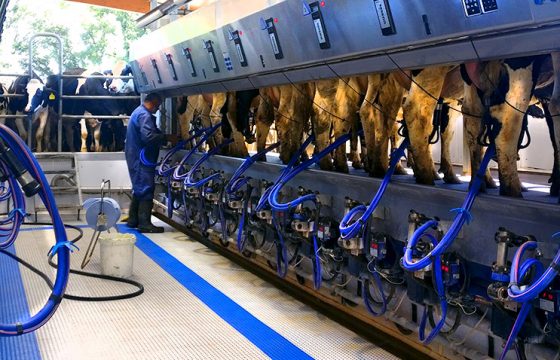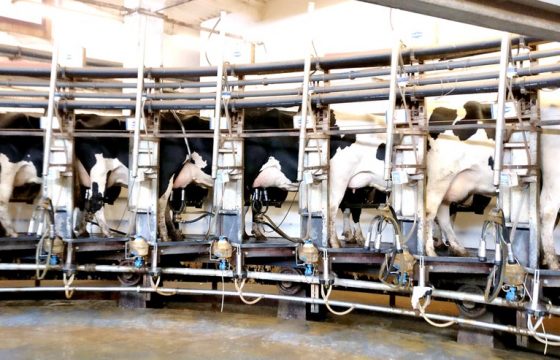Mastitis in Cattle: What have we learned during the last 10 years?
What are today’s keys for controlling the pathogens causing mastitis in cattle? We spoke with Oriol Franquesa, a veterinarian specialising in milk quality who has been advising dairy farms for many years all around the world. Dr. Franquesa helped us understand how milk quality has evolved over the last 10 years, since the first vaccine against bovine mastitis was registered by the EMA.
Interview with Oriol Franquesa, SPAIN
 Oriol Franquesa is part of the Q-llet team, a vet services company focused on udder health and mastitis problems in herds.
Oriol Franquesa is part of the Q-llet team, a vet services company focused on udder health and mastitis problems in herds.
“The main improvement in milk quality and mastitis in cattle is prevention. There is no doubt about this amongst both veterinarians and producers.”
1- What did you do 10 years ago to prevent mastitis in cattle?
Basically, we did the same as we do now, although with fewer tools. The basis of bovine mastitis prevention hasn’t changed. We have to focus on prevention.
Maximising the hygiene of the environment where the animals live, training and keeping a good team of milkers, inspection and maintenance of milking machines, culling of chronically sick cows, etc.
2- What was your opinion about vaccination against mastitis in cattle 10 years ago? And now?
10 years ago, we were not used to working with vaccines focused on the prevention of mastitis in cattle in Europe. We did receive reports and were aware of how the J5 vaccines worked in the US, but this product was not available in Spain and we had neither practice nor much confidence.
Now we have learned to work with them and the results have been satisfactory, but we always have to have prior knowledge of the type of bacteria that are involved on each farm in order to achieve the best results.
3- How has bovine mastitis prevention changed in the last 10 years?
As I have already mentioned, nothing much has changed in term of the basics.
Undoubtedly the most important change has definitely been in the increased importance attached to the immune status of the animals, both in terms of specific protection against certain bacteria by means of vaccination, and in increasing the non-specific immunity of the animals.
4- From your experience, what is the opinion of vets and farmers in the field regarding mastitis prevention and vaccination too?
It is clear throughout the production sector that the improvement in milk quality and mastitis in cattle is based on prevention. There is no doubt about this amongst both veterinarians and producers.
The role of the efficacy of vaccination is more open to question. This is where individual experience comes into play, as well as the type of problem that exists on each farm.
We have seen cases in which attempts have been made to vaccinate against bovine mastitis on farms where the predominant pathogens were not covered by the vaccine, and this alone causes frustration to the farmers and the veterinarians involved on the farm.
We have also seen that some veterinarians and farmers regard vaccination as the final solution to the problem of mastitis in dairy cows, and this is not the case.
Vaccination is a good tool for the prevention of mastitis in cattle when it is accompanied by good animal management.
5- What are the main challenges in mastitis prevention in the future?
We have to continue our commitment to the animal’s immune system. Both specific and non-specific immunity.
We veterinarians working in milk quality are doing a great deal of work on the environment of the animals, the milking routine, the milking machine and on the treatment for clinical mastitis, but this is an area that is still largely unknown to most of us: the immune status of the animals and how to influence it positively, whether by vaccination, diet, animal welfare etc.



One Comment
Totally agree, the future of the dairy industry must focus on mastitis prevention.
Comments are closed.